HSE University at SPIEF: Innovations, BRICS, and Healthcare
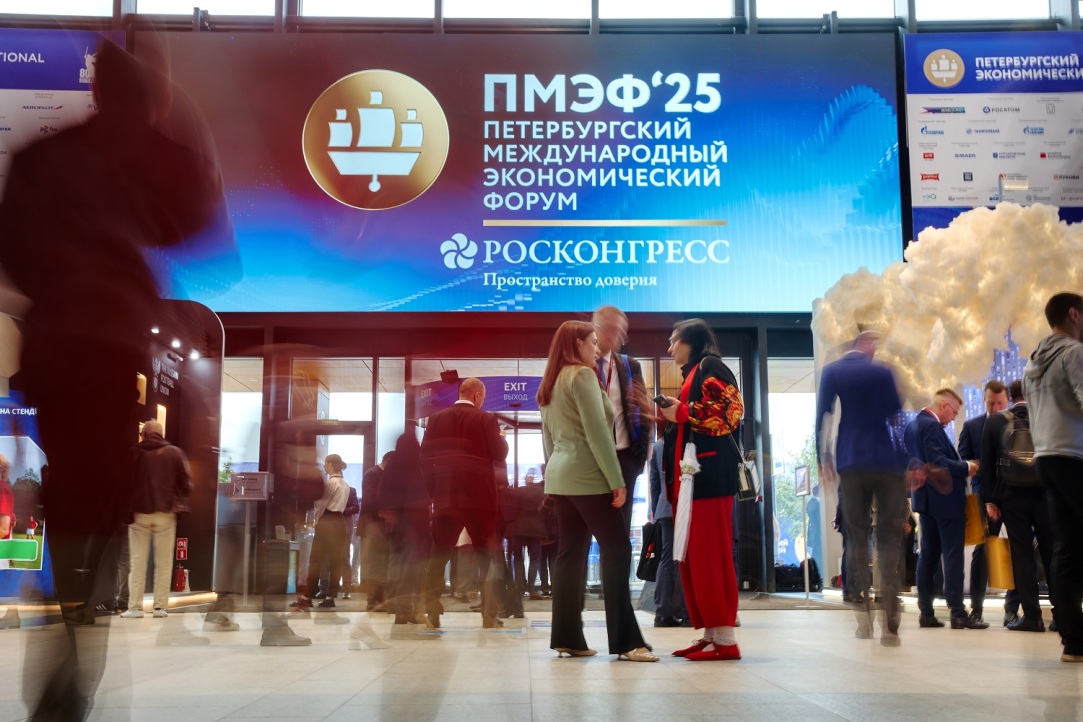
The St Petersburg International Economic Forum took place on June 18-21, 2025. HSE experts have discussed cooperation between universities, investors, and technology companies in the development of innovations, sharing the best practices in healthcare and drug safety, as well as charity and humanitarian collaboration in the BRICS countries. As a result, several cooperation agreements have been signed during the forum.
Universities and Business: How to Create Innovations
Irina Martusevich, HSE University Vice Rector, spoke at the SPIEF-2025 session ‘The Power of Partnership: How Collaboration between Universities, Investors, and Tech Companies Drives Innovation.’ The participants discussed the transformation of the role of universities in the perception of the business community.
Amid growing interest from government bodies and commercial companies in the development of projects with deep engineering and scientific engagement, universities are increasingly strengthening their role as source of new technologies and developments, as they have an opportunity to conduct interdisciplinary scientific research and have access to scientific and intellectual capital. In such circumstances, there is a growing number of projects where universities, technology and investment companies act as partners and work together to create investment and business development architecture that meets the most difficult challenges and develop advanced technologies of global importance.
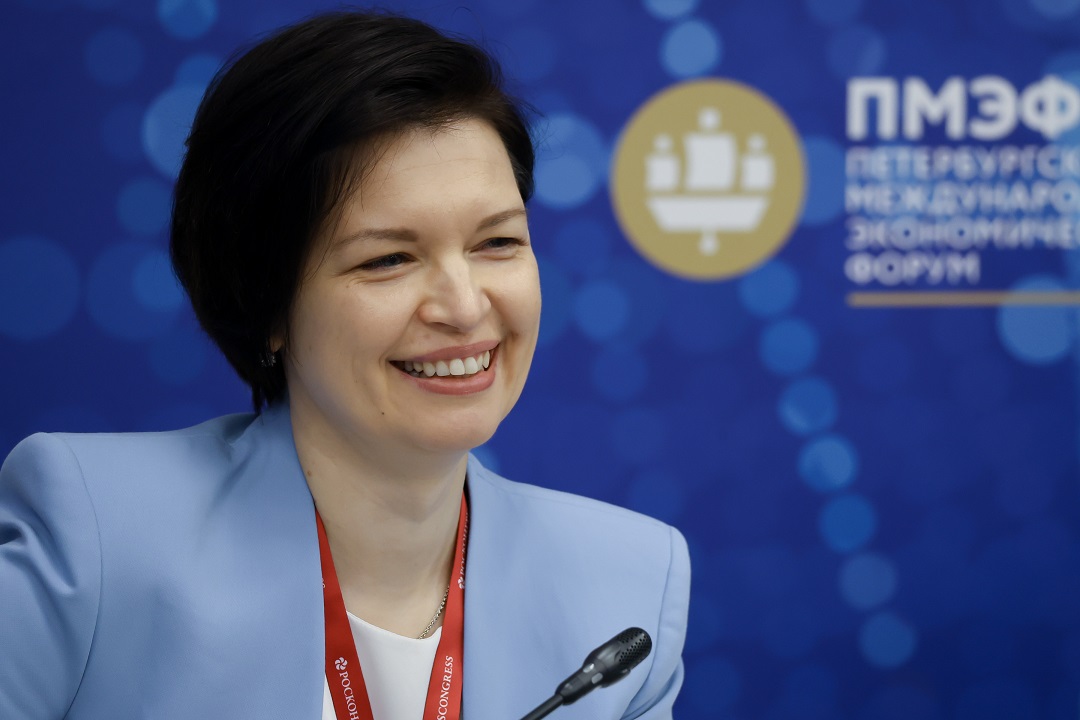
In her speech, Irina Martusevich noted that the university's industrial partners include the leaders of the IT industry. Due to this fact, HSE University was awarded the highest A+ ranking by the AI Alliance Russia.
Universities should not consider business as an exclusive customer of educational programmes, she added. There are fundamental skills, and the role of universities in this sense is essential.
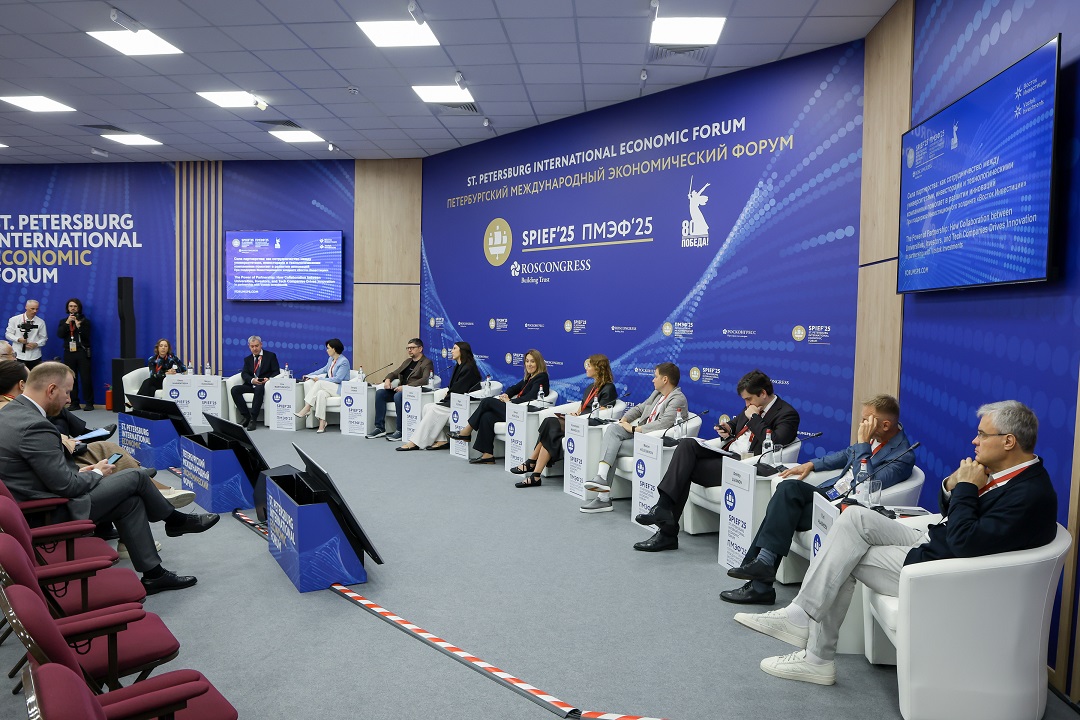
How to Keep a Healthy Lifestyle
‘Today we face a very ambitious, difficult, but achievable task—to increase the healthy life expectancy. And our key asset is painstaking, difficult, but very fruitful work on chronic noncommunicable diseases,’ said Alexander Rozanov, Director of the Association of Medical Specialists on Risk Modification, opening the session ‘Health-Preserving Environments: A Pathway to Health for All.’ Low physical activity, being overweight, unhealthy diet, and bad habits lead to the development of cardiovascular diseases, diabetes mellitus, oncological pathology, ie ‘those quiet killers that annually claim hundreds of thousands of lives in the Russian Federation.’ Therefore, it is necessary to study practices and solutions that will increase the proportion of citizens who lead a healthy lifestyle, explains Alexander Rozanov.
Larisa Popovich, Director of the HSE Institute for Health Economics, believes that ‘a huge proportion of diseases can be stopped by preventive measures.’ However, she is amazed by the gap between the proportion of people who want to lead a healthy lifestyle and the number of people who actually lead one. Large enterprises do deal with the issue of employee health, but there are hundreds of thousands of small and medium-sized enterprises in the country, and it is unclear what policy they pursue regarding employee health, says the expert.
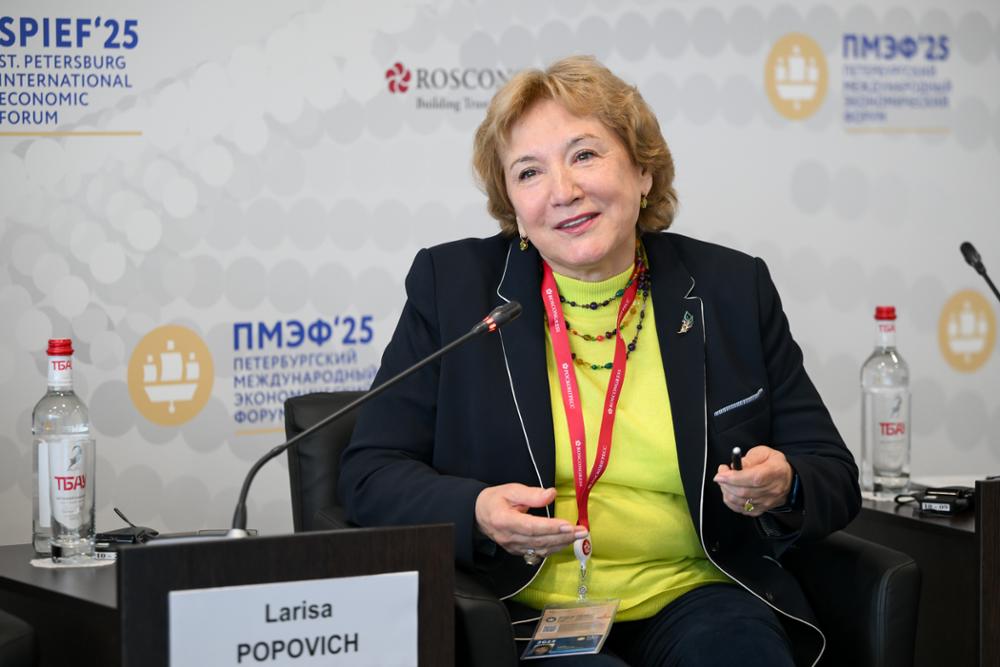
Reducing the smoking rate by at least 30% could return about one and a half trillion rubles to the economy. ‘We can expect no less an effect from a reduction of at least 30–40% in Russians’ dietary errors and blood sugar levels, as well as blood pressure control,’ she noted.
Maxim Protasov, Head of the Russian System of Quality, noted that according to surveys, at least 96% of citizens talk about longing for a healthy lifestyle. ‘Seventy-six percent of respondents answered that they follow a personal hygiene routine to maintain their health. Seventy-four percent regularly engage in physical activity, and seventy-four percent strive to stick to the rules of healthy eating,’ he said. However, these are only the intentions of Russians, and ‘we can see how many people actually put them into practice, following the results of disease statistics.’ He notes that, for example, Singapore has a system of subsidising manufacturers of healthy products. Similar tools are also available in Russia. In particular, this includes preferential certification and the promotion of useful products to the market.
Rogelio Varela, Chair of the Department of Surgery of the Healthway Qualimed Hospital San Jose del Monte (Philippines), Airat Farrakhov, Deputy of the State Duma of the Federal Assembly of the Russian Federation, Vice-President of the National Medical Chamber, and other experts also took part in the discussion.
BRICS and the Global Context
Alexey Ivanov, Director of the International BRICS Competition Law and Policy Centre, Professor at the HSE Faculty of Law, moderated the session ‘Drug Security in a Global Context: Intensifying Cooperation,’ which was held as part of the Ensuring Drug Security Forum at SPIEF 2025. The participants—representatives of Russian pharmaceutical businesses, relevant regulators and business associations, as well as Ye Myint, Director General of the Department for Control of Food and Drugs, Ministry of Health of the Republic of the Union of Myanmar (the only international speaker at the pharmaceutical forum)—discussed issues of regulatory solutions and the development of international cooperation to increase access to innovative medicines.
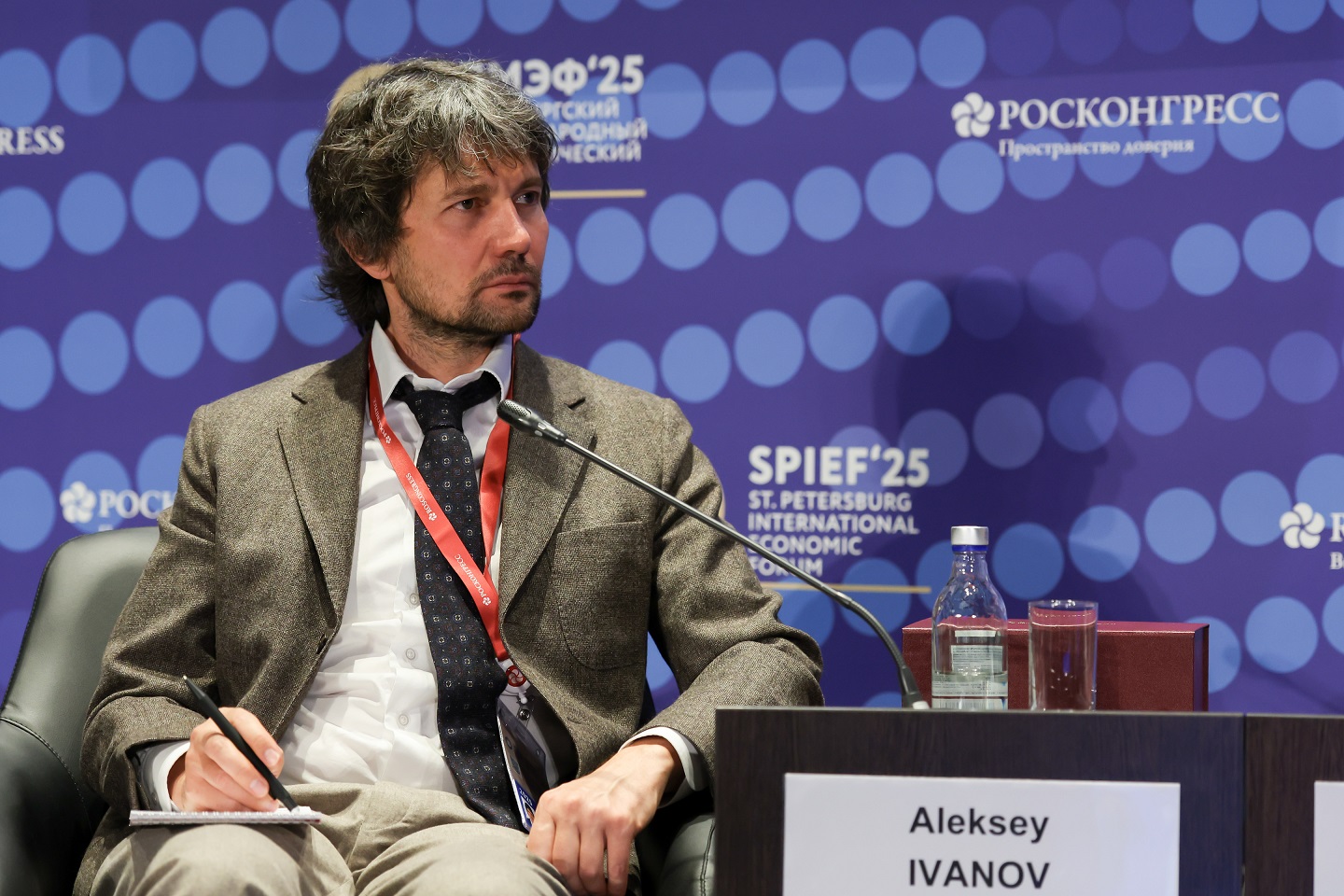
‘The pharmaceutical industry initially developed in the context of global interaction. Even during periods of serious geopolitical tension, international technology exchange continued and joint research was conducted,’ said Alexey Ivanov. ‘The COVID-19 pandemic was a striking example that clearly demonstrated the importance of cooperation between countries in combating global threats to healthcare.’
He stressed that one of the tasks facing the BRICS antimonopoly authorities' working group on pharmaceutical markets is to create conditions for healthy competition within the BRICS. ‘First of all, this concerns barriers to entry into the pharmaceutical markets of the participating countries, which could stimulate projects in the BRICS countries through bilateral and multilateral cooperation formats,’ he added.
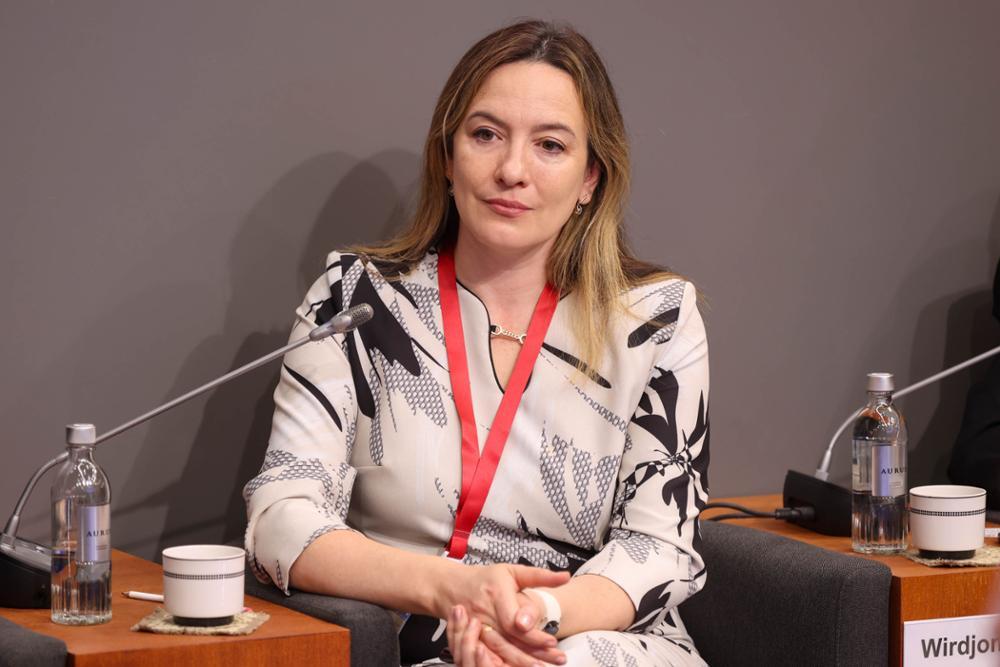
The topic of BRICS was also discussed at the session ‘BRICS Charity and Humanitarian Cooperation: Creating a Favourable Environment for People’s Lives.’ Victoria Panova, HSE University Vice Rector, Head of the BRICS Expert Council–Russia, and Russia's sherpa in the W20, participated in its work. ‘BRICS is required and important not only for governments—it is required and important for the peoples of our countries,’ she said. The association is intended to help countries and people develop according to their national interests and improve the well-being of each person, while the leaders of the states are well aware of the need for public and civil dialogue, said Victoria Panova.
See also:
‘HSE University Considers Training in AI Technologies to Be a Basic Requirement’
‘Technologies of the Future: A Common Global Space or Every Nation for Itself?’ was the title of a session held on June 19, 2025, with the support of Alfa-Bank at this year’s St Petersburg International Economic Forum (SPIEF-2025). The discussion featured HSE University Rector Nikita Anisimov and was moderated by journalist, TV presenter, and public figure Ksenia Sobchak.
'We Are Open to Cooperation on an Equal Basis and Will Find a Path to a Better Future'
How are digital platforms contributing to sustainable development? How is international cooperation progressing in Eurasia? How should the Russia-India business dialogue proceed? HSE University's scientists presented their answers during expert discussions at the St Petersburg International Economic Forum.
HSE Distinguished Professor Sergey Karaganov Moderates Plenary Session at SPIEF
At the plenary session of the St Petersburg International Economic Forum (SPIEF), Russian President Vladimir Putin participated alongside the Presidents of Bolivia and Zimbabwe, Luis Alberto Arce Catacora and Emmerson Dambudzo Mnangagwa. For the first time, a representative from HSE University—Sergey Karaganov, Academic Supervisor of the Faculty of World Economy and International Affairs and HSE’s distinguished professor—served as the moderator of the plenary session.
HSE University Experts Take Part in Preparing Report ‘Russia—Oman—Partnership Prospects’ at SPIEF 2024
The report, prepared by the Roscongress Foundation and experts of the HSE Institute for Public Administration and Governance, covers the current situation in the economy of the Sultanate of Oman and the prospects for Russian-Omani partnership. Prior to SPIEF 2024, HSE was the first Russian university to sign a cooperation agreement with the University of Nizwa (Oman).
HSE University at SPIEF: From Cyber Gaming to Arctic Development
The timeliness of Russia’s first cyber gaming platform, the importance of closing the gender gap in the IT industry, and the future of international cooperation in the Arctic were just some of the issues discussed at the St Petersburg International Economic Forum (SPIEF). The HSE News Service reports on some of the topics of discussion at the forum.
Qatari Ambassador Ahmed Al Thani Visits HSE University
During the St Petersburg International Economic Forum, HSE University-St Petersburg hosted Sheikh Ahmed bin Nasser bin Jasim Al Thani, Ambassador of Qatar to the Russian Federation.
HSE University at SPIEF: Smart Migration and the Future of the Global Economy
Sessions attended by HSE University experts at the recent St. Petersburg International Economic Forum focused on the digitalisation of migration management, regionalisation of the world economy, participation of companies in global value chains, and many other topics. Below, HSE News Services covers some of the main sessions of the event.
HSE University and Rossotrudnichestvo Agree to Train Specialists in Teaching Russian as a Foreign Language
HSE University and Rossotrudnichestvo have signed an agreement to establish a Russian Language Centre at HSE University in St Petersburg. It will train teachers of Russian studies and future leaders of educational programmes and courses of Russian as a foreign language. The document was signed by HSE University Rector Nikita Anisimov and Head of Rossotrudnichestvo Yevgeny Primakov at the St Petersburg International Economic Forum.
HSE University and Agency for Strategic Initiatives Sign Cooperation Agreement
HSE University and the Agency for Strategic Initiatives (ASI) have agreed to cooperate in the development of new technologies, the digital transformation of the economy, and the social development of the country. The agreement was signed by HSE University Rector Nikita Anisimov and ASI Director General Svetlana Chupsheva at the St Petersburg International Economic Forum.
HSE University Concludes 12 Cooperation Agreements as Part of SPIEF
During the St. Petersburg International Economic Forum, HSE Rector Nikita Anisimov signed cooperation agreements with regional heads, university rectors, heads of companies, government agencies, public organisations, and cultural institutions. This cooperation with new partners will cover a wide range of areas—from educational and research projects to student expeditions and youth policy.


